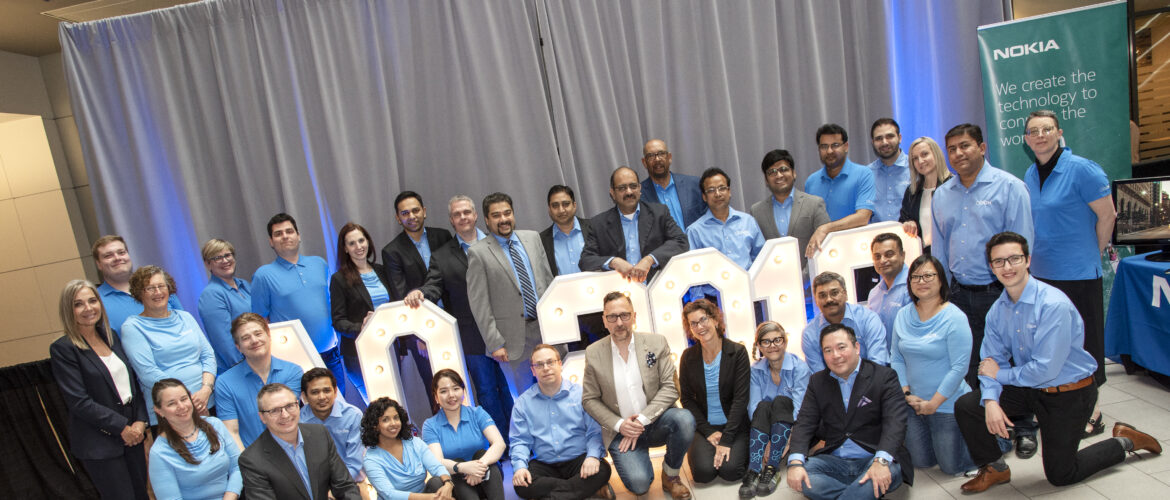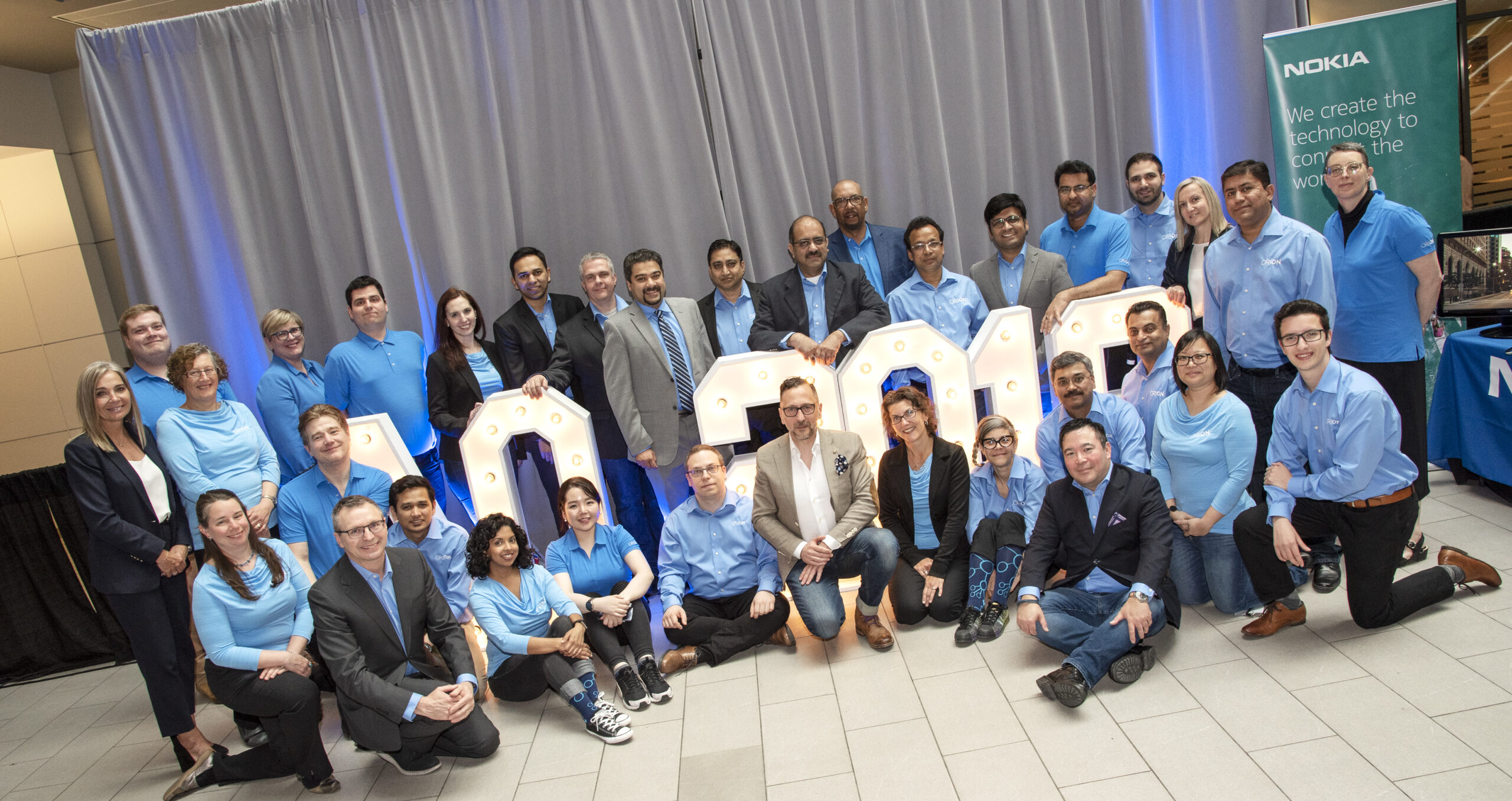Over 200 of you joined us at the Advance Ontario 2019 conference to learn more about Ontario’s digital research and education ecosystem and discuss how we could work together to improve it in the future. We were pleased to see so many from our joint communities come together to add their diverse voices and perspectives to the event.
Advance Ontario 2019 brought together innovators, academics, researchers and policymakers to talk about how we can better connect, compute and innovate, and help shape a better future for Ontarians. Collaboration, strong governance and innovation were key themes that recurred in many panels, keynotes and conversations. This highlights the need for stakeholders to come together and build a strong community where each sector plays to its strengths to solve some of our biggest challenges and build a better way of life. Here are some of the key takeaways from Advance Ontario 2019:
Quantum computing is key to further developing our existing infrastructure
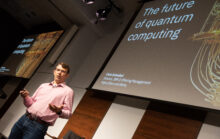 Advance Ontario commenced with Chris Schnabel, Director, Product Management, IBM Quantum Computing, who focused on how we could harness the power of quantum computing to explore enormous possibilities. He highlighted how we could leverage the power of quantum computing to build on and accelerate research and results from our existing data, use cases and high-performance computing abilities.
Advance Ontario commenced with Chris Schnabel, Director, Product Management, IBM Quantum Computing, who focused on how we could harness the power of quantum computing to explore enormous possibilities. He highlighted how we could leverage the power of quantum computing to build on and accelerate research and results from our existing data, use cases and high-performance computing abilities.
Cybersecurity is everyone’s responsibility
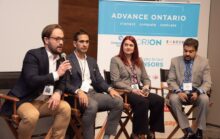 “The Weakest Link” breakout session discussed how it is important to be aware of the risks and threats to our information systems as technical solutions can only work to a certain extent. The more technology available, the more vulnerable humans are. The panel agreed that our false sense of security is our biggest folly, which makes us more vulnerable to attacks. The key to prevent a breach of security is to educate users about cyber threats, develop an online security framework and build a stronger workforce of highly trained personnel.
“The Weakest Link” breakout session discussed how it is important to be aware of the risks and threats to our information systems as technical solutions can only work to a certain extent. The more technology available, the more vulnerable humans are. The panel agreed that our false sense of security is our biggest folly, which makes us more vulnerable to attacks. The key to prevent a breach of security is to educate users about cyber threats, develop an online security framework and build a stronger workforce of highly trained personnel.
Active participation and articulation are key to promoting diversity
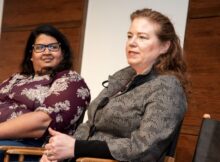 The “Diversity, Data Science, and Digital Inclusion” panel discussed how diversity isn’t always about gender and that there are many other factors that we need to keep in mind while developing equality, diversity, and inclusion strategies. While Canada is a cultural hotpot of diverse cultures, opinions, and expertise, diversity is prominent only at entry level positions. Dr. Jennifer Mitchell, Aashni Shah and Claudia Krywiak stressed the importance of leaders encouraging meritorious professionals of diverse backgrounds so Ontario can benefit from their diverse perspectives. This involves actively articulating present challenges and encouraging conversations about diversity in STEM to eliminate biases.
The “Diversity, Data Science, and Digital Inclusion” panel discussed how diversity isn’t always about gender and that there are many other factors that we need to keep in mind while developing equality, diversity, and inclusion strategies. While Canada is a cultural hotpot of diverse cultures, opinions, and expertise, diversity is prominent only at entry level positions. Dr. Jennifer Mitchell, Aashni Shah and Claudia Krywiak stressed the importance of leaders encouraging meritorious professionals of diverse backgrounds so Ontario can benefit from their diverse perspectives. This involves actively articulating present challenges and encouraging conversations about diversity in STEM to eliminate biases.
Building smart cities, now a necessity, requires collaboration within all sections of the ecosystem
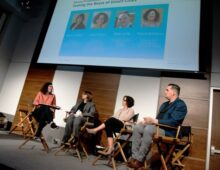 “Taming the Beast of Smart Cities” featured panelists from the Toronto Public Library, Canadian Civil Liberties Association’s Privacy, Ericsson Montreal Innovation Lab and the School of Urban and Regional Planning at Ryerson University. The panel discussed the various challenges they face in their respective fields of work to build a smarter way of life for Canadians. From the lack of updated regulations, privacy concerns, limited communication and education in the space, and limited access to infrastructure, Canadians face enormous challenges in building smart cities. However, through active citizen participation, collaborations within the ecosystem, conversations about policies and laws monitoring data privacy, Ontario might be able to build a better society for its residents.
“Taming the Beast of Smart Cities” featured panelists from the Toronto Public Library, Canadian Civil Liberties Association’s Privacy, Ericsson Montreal Innovation Lab and the School of Urban and Regional Planning at Ryerson University. The panel discussed the various challenges they face in their respective fields of work to build a smarter way of life for Canadians. From the lack of updated regulations, privacy concerns, limited communication and education in the space, and limited access to infrastructure, Canadians face enormous challenges in building smart cities. However, through active citizen participation, collaborations within the ecosystem, conversations about policies and laws monitoring data privacy, Ontario might be able to build a better society for its residents.
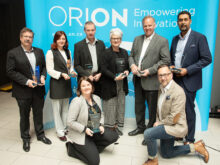 The conference was also an opportunity for us to acknowledge Ontario innovators who have leveraged ORION’s digital tools to strengthen the province. Congratulations again to our Leadership Award winners, Bob Campbell (Connecting Windsor-Essex), Peter Singh (Toronto District School Board), David Cullum (Brock University), Scott Briggs (Humber College), Luc Roy (Laurentian University), John Levay (Niagara College), Alastair MacLeod (OCAD University), Jennifer Doyle and Denise Ernst (Queen’s University), Lisa Grothier (St. Lawrence College), and Nela Petkovic (Wilfrid Laurier University). Thank you for your immense contributions to Ontario’s digital economy.
The conference was also an opportunity for us to acknowledge Ontario innovators who have leveraged ORION’s digital tools to strengthen the province. Congratulations again to our Leadership Award winners, Bob Campbell (Connecting Windsor-Essex), Peter Singh (Toronto District School Board), David Cullum (Brock University), Scott Briggs (Humber College), Luc Roy (Laurentian University), John Levay (Niagara College), Alastair MacLeod (OCAD University), Jennifer Doyle and Denise Ernst (Queen’s University), Lisa Grothier (St. Lawrence College), and Nela Petkovic (Wilfrid Laurier University). Thank you for your immense contributions to Ontario’s digital economy.
Technology can really save the world!
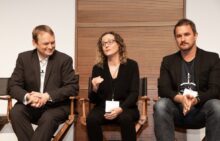 The most optimistic session throughout the conference, “How Technology Can Save the World”, highlighted notable achievements by Canadians who have used technology to build a better and more informed way of life. Jason Ernst from RightMesh discussed using 5G to solve networking infrastructure problems in remote areas with limited access to resources. Tessa Sproule of Vubble spoke passionately about using machine learning to reduce the power of fake news and sensationalism. Evan Fraser of the Arrell Food Institute, at the University of Guelph, showcased how technology is optimizing food production and safety to feed the world’s burgeoning population. By leveraging the power of technology and collaboration, these leaders are solving societal problems to create long-lasting impact.
The most optimistic session throughout the conference, “How Technology Can Save the World”, highlighted notable achievements by Canadians who have used technology to build a better and more informed way of life. Jason Ernst from RightMesh discussed using 5G to solve networking infrastructure problems in remote areas with limited access to resources. Tessa Sproule of Vubble spoke passionately about using machine learning to reduce the power of fake news and sensationalism. Evan Fraser of the Arrell Food Institute, at the University of Guelph, showcased how technology is optimizing food production and safety to feed the world’s burgeoning population. By leveraging the power of technology and collaboration, these leaders are solving societal problems to create long-lasting impact.
Our way of working is changing now
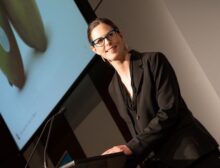 Advance Ontario’s closing keynote speakers, Heather Russek and Jessica Thornton from the Brookfield Institute for Innovation and Entrepreneurship, shared how technology and other environmental factors are impacting our workforce. They have been tracking trends to develop better foresight-driven strategies for the future of work. The session covered the good, bad and ugly possibilities of how technology may shape our future. It explored concepts, ideas and trends such as digital identities revolutionizing how we screen job candidates, using AI to supplement creativity in the workforce, building brain and sensory enhancements, accounting and planning for the increasing number of climate change refugees, late retirements and lifelong learners.
Advance Ontario’s closing keynote speakers, Heather Russek and Jessica Thornton from the Brookfield Institute for Innovation and Entrepreneurship, shared how technology and other environmental factors are impacting our workforce. They have been tracking trends to develop better foresight-driven strategies for the future of work. The session covered the good, bad and ugly possibilities of how technology may shape our future. It explored concepts, ideas and trends such as digital identities revolutionizing how we screen job candidates, using AI to supplement creativity in the workforce, building brain and sensory enhancements, accounting and planning for the increasing number of climate change refugees, late retirements and lifelong learners.
Thank you to our sponsors, speakers, volunteers and all participants of Advance Ontario 2019, for making this event such a wild success!

